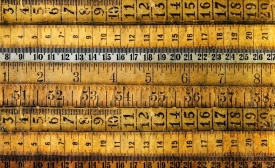soft power
Bolivia will host the 2nd Forum of Ancient Civilizations in 2018 with the objective of promoting the exchange of ancestral knowledge among several countries, announced local media. [...] The first edition of the event took place this year in Athens with the participation of heirs of great civilizations, among them, Bolivia, China, Egypt, India, Iran, Iraq, Italy, Greece, Peru and Mexico.
To be an effective public diplomat, you need a well of sufficient soft power resources on which to draw. There is no canonical definition of public diplomacy (PD), but the official practice of it involves using informational, educational, and cultural tools to engage with international audiences to advance foreign policy goals. For the United States, PD officials often design strategies and employ tools that leverage what makes America popular and attractive.

Katherine Brown delves into the importance of evaluating public diplomacy and offers advice on how to do so.
"The announcement of Neymar's transfer to PSG was piloted among the high ranks in Qatar as a sort of communications strategy that would overshadow the debate around all other considerations, namely terrorism," said Mathieu Guidere, an expert in the geopolitics of the Arab world.
Odessa may not exactly leap to mind as a hotbed for book lovers – it is perhaps better known globally for its "mail-order bride" industry. And although it lacks the literary pedigree of St Petersburg, Edinburgh, Paris or Tangier, it has a storied past as a stopping point for Europe-trotting writers and intellectuals.
Indonesia and New Zealand agreed on Wednesday to improve coordination in combating terrorism through information exchange and preventive measures. [...] BNPT chief Comr. Gen. Suhardi Alius and New Zealand's assistant commissioner for international and national security, Michael Pannet, also discussed deradicalization programs, with both countries agreeing to exercise a soft-power approach as a means of prevention, particularly toward families and communities with a history of radicalism to alter their orientation and offer counternarratives.
Madagascar airports are all set for upgrade and expansion with the help of the Emerging Africa Infrastructure Fund (EAIF). [...] “Any international airports are the symbol of the connection to the world,” said Hery Rajaonarimampianina, President of the Malagasy Republic when he visited the project site. “The work would reflect the modern and dynamic and friendly image of Madagascar,” he added.
Switzerland has always retained the fiercely held diplomatic neutrality which makes it a go-between for nations in conflict and a hub for the multilateral organizations that have flocked to Geneva. [...] As a small country aiming to make its splash in the U.S., Switzerland’s public diplomacy efforts focused on less contentious issues: showcasing its status as an important investor in the U.S. and promoting apprenticeships as a cure for the American skills gap.







